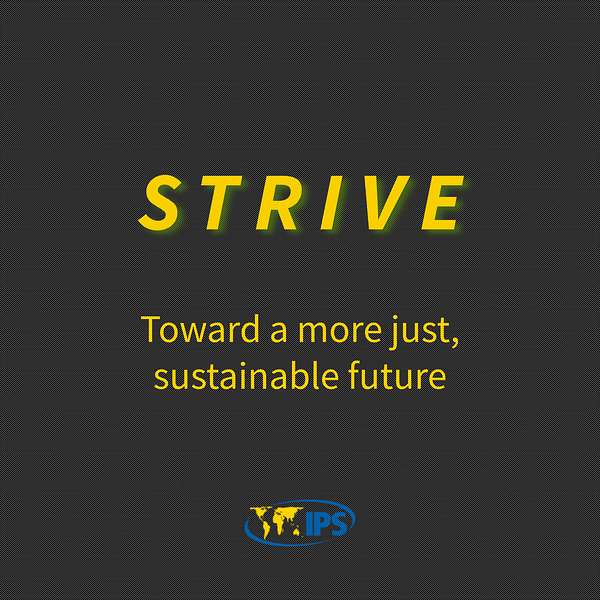
Strive: Toward a more just, sustainable future
Strive: Toward a more just, sustainable future
Migrant workers’ remittances fund development—make it easier for them
I hope you had a chance to listen to our last episode, Environmental disasters creating more migrants within countries. We talked about the rising number of people who are forced out of their homes because of climate or environmental disasters. Nearly 30 million men, women and children in 149 countries were displaced in 2020, temporarily or for good and the signs are, that those numbers will only grow.
Today we’re continuing our series of conversations about people on the move globally, talking about remittances and the migrant workers worldwide who send these earnings home to their families—$200 each month on average according to today’s guest, Pedro de Vasconcelos. He is the Senior Technical Specialist/ Coordinator at the Financing Facility for Remittances of the International Fund for Agricultural Development, or IFAD.
The size of global remittances is astounding—$554 billion US dollars in 2019. More surprising to me is that this sum is greater than combining all of the foreign direct investment (FDI) and overseas development assistance (ODA) sent to the countries of the developing world. In effect, the workers of the world’s poorest countries are doing more to lift themselves out of poverty than anyone else, but that’s not something you often hear in development discussions.
Of course we couldn’t have this conversation without noting the impact of Covid-19 on remittances and migrant workers. Here in Nepal there were horrifying stories in the media of groups of workers, many in Persian Gulf countries, who were forced out of work during lockdowns, eventually ran out of money, then food, and had to rely on the kindness of friends and even strangers, until they could raise enough cash to buy an air ticket home—when flights were available—or just wait out lockdowns.
Pedro predicts that Covid-19’s impact on remittances will be a wake-up call to the public and private sectors about the crucial role that the earnings generated by the world’s migrant workers play in keeping economies afloat. If those involved can sync their efforts to ensure that the money can be sent home as efficiently as possible and that workers are given more and better options to use their earnings, it is possible to imagine a day when migration for work will be a choice and not a necessity.
Please listen now to my conversation with Pedro de Vasconcelos.
Thanks again to Pedro de Vasconcelos of IFAD for sharing his time with me, especially for agreeing to a second interview within days, and when he was travelling, after online connection problems during our first chat. If you have any thoughts about this episode, you can share them with us on Twitter, Facebook or LinkedIn—our handle is IPSNews. We’d also love to hear your ideas for future episodes about People on the Move around the world. Don’t forget—you can follow or subscribe to Strive on Spotify, Google, Apple Podcasts and most other podcast players.
My name is Marty Logan, you can email me at mlogan(at)ipsnews.net. Strive will be back soon and is a production of IPS News.
Resources
Financing Facility for Remittances, IFAD
Nepali Migrant Workers stuck overseas — article in Nepali Times newspaper
Strive on social media
Twitter